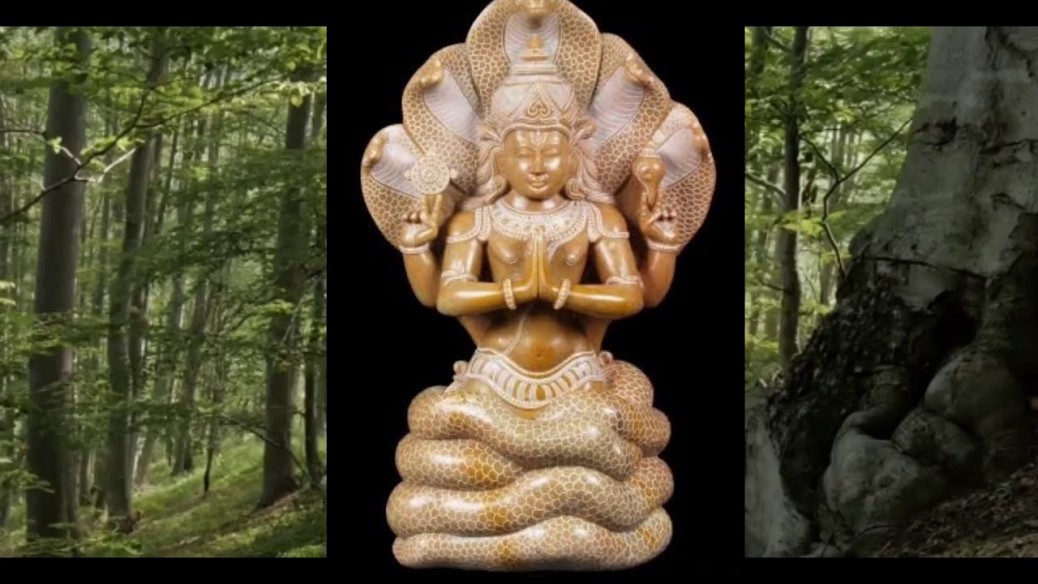Second source is inference. That is secondary, but that too is worth consideration because, as you are right now, you don’t know whether there is a self within or not. You have no direct knowledge of your inner being. What to do? There are two possibilities. You can simply deny that there is no inner core of your being, there is no soul, like charvakas do or in the West, Epicurus, Marx Engels and others have done.
But Patanjali says that if you know, there is no need for inference, but if you don’t know then too it will be helpful to infer. For example, Descartes, one of the greatest thinkers of the West, started his philosophical quest through doubt. He took the standpoint from the very beginning that he will not believe in anything which is not indubitable. That which can be doubted, he will doubt. And he will try to find out a point which can not be doubted, and only on that point he will create the whole edifice of his thinking. A beautiful quest – honest, arduous, dangerous.
So he denied God because you can doubt. Many have doubted, and no one has been able to answer their doubts. He went on denying. Whatsoever could be doubted, conceived to be dubitable, he denied. For years continuously he was in inner turmoil. Then he fell upon the point which was indubitable: he couldn’t deny himself; that was impossible. You cannot say, “I am not.” If you say it, your very saying proves that you are. So this was the basic rock – that “I cannot deny myself; I cannot say I am not. Who will say it? Even to doubt, I am needed.”
This is inference. This is not direct cognition. This is through logic and argument, but it gives a shadow, it gives a glimpse, it gives you a possibility, an opening. And then Descartes had the rock, and on this rock a great temple can be built. One indubitable fact, and you can reach to the absolute truth. If you start with a doubtful thing, you will never reach anywhere. In the very base, doubt remains.
Patanjali says inference is the second source of right knowledge. Right logic, right doubting, right argument can give you something which can help towards real knowledge. That he calls inference, anuman. Directly you have not seen, but everything proves it; it must be so. Situational proofs are there that it must be so.
For example, you look around the vast universe. You may not be able to conceive there is a God, but you cannot deny – even through simple inference you cannot deny – that the whole world is a system, a coherent whole, a design. That cannot be denied. The design is so apparent, even science cannot deny. Rather, on the contrary, science goes on finding more and more designs, more and more laws.
If the world is just an accident, then science is impossible. But the world doesn’t seem to be an accident, it seems to be planned, and it is running according to certain laws, and those laws are never broken.
Patanjali will say that design in the universe cannot be denied, and if once you feel there is a design, the designer has entered. But that is an inference; you have not known him directly – but the design of the universe, the planning, the laws, the order. And the order is so superb! It is so minute, so superb, so infinite! The order is there; everything is humming with an order, a musical harmony of the whole universe. Someone seems to be hidden behind, but that’s an inference.
Patanjali says inference also can be a help towards right knowledge, but it has to be right inference. Logic is dangerous; it is double-edged. You can use logic wrongly; then too you will reach conclusions.
For example, I told you that the plan is there, the design is there; the world has an order, a beautiful order, perfect. Right inference will be that there seems to be somebody’s hand behind it. We may not be directly aware, we may not be in direct touch with that hand but a hand seems to be there, hidden. This is the right inference.
But from the same premises you can infer wrongly also. There have been thinkers who have said… Diderot has said that, “Because of order I cannot believe there is God. In the world there seems to be perfect order. Because of this order, I cannot believe in God.” What is his logic? He says if there is a person behind, then there cannot be so much order. If a person is behind it, then he must commit mistakes sometimes. Sometimes whimsical he must go, crazy, sometimes he must change. Laws cannot be so perfect if someone is behind. Laws can be perfect if there is no one behind and they are simply mechanical.
That too has an appeal. If everything goes perfectly, it looks mechanical because about man, it is said, to err is human. If some person is there, then he must err sometimes – he will get bored with so much perfection. And sometimes he must like to change.
The water boils at a hundred degrees. It has been boiling at hundred degrees for millennia, always and always. God must get bored, if someone is behind, Diderot says. So just for a change, one day he will say, “Now, from onwards the water will boil at ninety degrees.” But it has never happened, so there seems to be no person.
Both arguments look perfect. But Patanjali says right inference is that which gives you possibilities of growth. It is not a question whether the logic is perfect or not. The question is your conclusion should become an opening. If there is no God, it becomes a closing. Then you cannot grow. If you conclude there is some hidden hand, the world becomes a mystery. And then you are not here just by accident. Then your life becomes meaningful. Then you are part of a great scheme. Then something is possible; you can do something you can rise in awareness.
A right inference means one which can give you growth, that which can give you growth; a wrong inference is that, howsoever perfect looking, which closes your growth. Inference can also be a source of right knowledge. Even logic can be used to be a source of right knowledge, but you have to be very aware of what you are doing. If you are just logical, you may commit suicide through it. Logic can become a suicide. It becomes for many.
A logical mind can be closed, and so logically, that he will never feel that he has closed his own doors of all possibilities for all growth. So inference, anuman, means thinking in such a way that growth is helped. Then it can become a source of right knowledge.
Tags: Musical Harmony Patanjali Yoga Sutra 3.1 Inference










